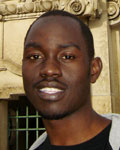Google speaks two new Ugandan languages

In Uganda, Luo is largely spoken by people from the northern part of the country while Runyakitara is spoken by people in the west. The two languages bring to five the number of native languages available on Google's Uganda domain.
This is in addition to Luganda, Ikinyarwanda, and Kiswahili. The Kiswahili version was unveiled to East Africans on 1 July 2010, to mark the beginning of the East African Community Common Market shared by Rwanda, Uganda, Tanzania, Kenya and Burundi.
More internet interaction
Speaking at the launch of the new Google dialects, Dr. Josephine Nabukenya the dean of the IT faculty at Makerere University said, "Local language versions of technology, such as in Google Search, will reduce this intimidation and allow wider groups to interact more freely with the internet, eventually leading to increased publishing in local languages." She added that according to estimates, only 10% (three million) of Uganda is computer literate.
Joan Kiambati a Google publicist in East Africa said the languages which have added another 10,000 new words to Google's diction, were launched as part of an ongoing volunteer program known as Google-in-Your-Language. Denis Gikunda, the project manager at Google, said the initiative is a great example of how the internet encourages user participation from cultural and linguistic communities.
Google-in-Your-Language
The initiative is designed to give anyone the tools to translate Google services into languages in which they are fluent. Through the programme, the Google homepage now appears in more than 100 languages spoken across the world.
The new additions in Uganda were integrated in Google by a group of IT language students at Makerere, professional translators and journalists under the leadership of Florence Tushabe a Makerere IT staff member.
"A group of 30 people took part in intense discussions that culminated in the formulation of new words and the adaptation of existing ones to represent the technical computing jargon. It was very fulfilling," Tushabe said.








